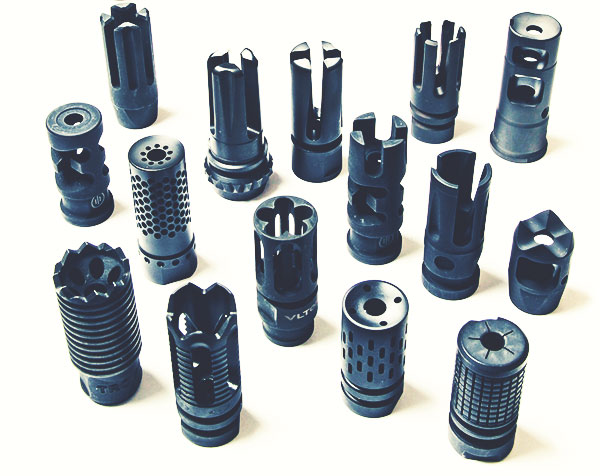What is the best opinion on comps? Where should I start looking if I wanted to replace my gun compensator?
Compensators are devices that are attached to the muzzle of a gun to help reduce recoil. There are a variety of different types of compensators, but they all serve the same basic purpose. To evaluate the performance of a gun compensator, you need to consider a few factors.
First, you need to think about the intended purpose of the compensator. Are you looking for something that will work for home defense or competition shooting? Each type of shooting has different requirements when it comes to recoil reduction. For example, during rapid fire competition shooting, you might want a compensator that can quickly redirect gases to maintain muzzle control. Home defense shooters, on the other hand, may prefer a more simple design that is less likely to jam.
You also need to take into account the size of the gun compensator. Some designs are much larger than others, and this can have an impact on both recoil reduction and muzzle rise. If you are using a smaller handgun, then you will want to choose a compact compensator to avoid any issues with muzzle rise.
Finally, you need to think about the price of the gun compensator. There are a variety of different materials that can be used to build a compensator, and each one has its own cost. In general, the more expensive materials will offer better recoil reduction, but they may also add more weight to the gun. As you can see, there are a lot of different factors to consider when choosing a gun compensator. By taking the time to evaluate your needs, you can find the perfect device for your particular situation.
If you’re looking for more information on gun compensators, then check out our other articles. We have a lot of great information on a variety of different topics, including muzzle brakes and flash suppressors. In addition, we offer a wide selection of gun parts and accessories, so you’re sure to find everything you need to build the perfect firearm. Thanks for reading!
There are a few ways to evaluate the performance of a gun compensator. One way is to calculate the muzzle rise, muzzle jump, or recoil. This can be accomplished by using a ballistic calculator, which you can find online or in some hunting magazines.
Another way to measure performance is to test the gun on a firing range. By shooting at different distances and comparing the results, you can get an idea of how effective the compensator is at reducing felt recoil and muzzle rise.
There are a few things to keep in mind when evaluating the performance of a gun compensator. First, what is the purpose of the compensator? Is it installed to reduce muzzle rise and felt recoil? If so, then you will want to test it by firing both supervised and unsupervised groups. Supervised groups are those in which you pay close attention to your target, front sight alignment, and trigger control. Unsupervised groups are fired without caring as much about target engagement or focusing on the front sight. You should notice a difference between the two types of groups, with the unsupervised group showing less muzzle rise and felt recoil.
Another thing to consider is threaded barrel length. The longer the barrel, the more effective the compensator will be. This is because there is more time for the gases to expand and exit the muzzle before they impact the projectile. Thus, a longer barrel will provide more compensation than a shorter barrel.
One final consideration is ammunition type. Heavier bullets will produce more recoil than lighter bullets, so you may need to experiment with different types of ammo to find the best combination for your needs.
In general, compensators can be an effective way to improve the performance of your firearm. However, it is important to keep in mind that they are not magic bullets and will not make your gun shoot perfectly. Be sure to do your research and test different products to find the one that works best for you.
There are a few key things to keep in mind when evaluating the performance of a gun compensator.
First, it is important to consider the Make and Model of the gun. Compensators are not all created equal and some will work better with certain makes and models of guns than others.
Second, you need to take a close look at the barrel length. The shorter the barrel, the more effective the compensator will be.
Third, you need to think about how much muzzle rise you are willing to tolerate. The higher the muzzle rise, the more compensation you will need from your compensator.
Finally, you need to decide what type of shooting you will be doing most often.
If you are primarily shooting long-range targets, then a compensator designed for that purpose will be more effective than one designed for close-range shooting.

